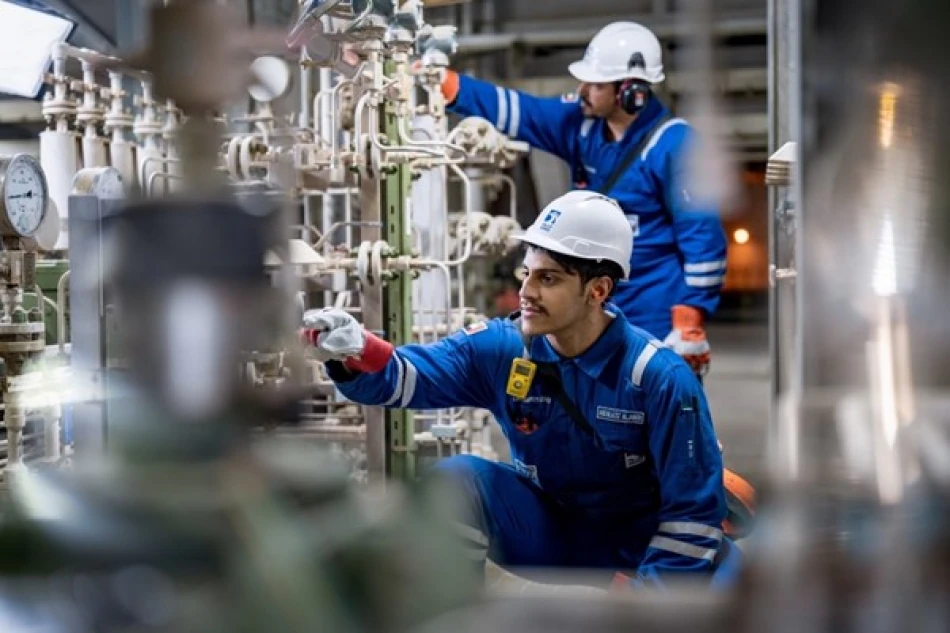
UAE's Economy Fortified by Diversity and Proactive Fiscal Policies Amidst Crises
UAE Emerges as Global Economic Safe Haven Amid Rising Trade War Tensions
While global markets brace for a new wave of U.S. tariffs and production shifts within OPEC+, the United Arab Emirates stands uniquely positioned to weather the storm. A combination of economic diversification, oil price stability, and proactive fiscal policies has created a resilient economy that continues to attract investors seeking stability amid mounting international uncertainties.
Strategic Advantages Shield UAE from Global Headwinds
The UAE's economic resilience stems from deliberate long-term planning that has paid dividends during turbulent times. Unlike economies heavily dependent on single revenue streams, the Emirates has built a diversified foundation that includes finance, tourism, logistics, and technology sectors alongside its traditional oil base.
This diversification strategy mirrors successful approaches seen in Singapore and Switzerland, where economic variety has historically provided stability during global downturns. The UAE's model, however, uniquely combines this diversification with strategic oil exemptions from U.S. tariffs, creating a dual layer of protection.
Trump's Tariff Offensive Creates Market Disruption
Sweeping Trade Measures Target Multiple Sectors
Starting August 1st, the Trump administration's renewed trade offensive will implement comprehensive tariffs including up to 50% on copper imports and significant increases on goods from Brazil, Japan, South Korea, and 14 other nations. These measures represent a return to the aggressive trade policies that characterized Trump's previous term, but with even broader scope.
Supply Chain Disruptions Loom Large
Market analysts warn that these escalating trade tensions will likely trigger widespread disruptions in global supply chains while exacerbating inflationary pressures in import-dependent economies. Countries like Germany and Japan, which rely heavily on complex international supply networks, face particular vulnerability.
The UAE's strategic position as a regional hub, combined with its free trade zone model, positions it to potentially benefit from supply chain reshuffling as companies seek alternative routes and partnerships.
Oil Market Dynamics Favor UAE Strategy
OPEC+ Production Increases Signal Confidence
Recent OPEC+ developments have created favorable conditions for the UAE's energy sector. The organization announced an unexpected production increase of 548,000 barrels per day in August, with the UAE among the key contributors. This represents a gradual rollback of previous voluntary production cuts, signaling confidence in sustained demand.
With Brent crude maintaining levels above $68 per barrel and West Texas Intermediate holding above $67, the UAE is positioned to capture significant financial gains from both increased production and stable pricing.
Revenue Diversification Reduces Oil Dependency Risks
While oil revenues remain important, the UAE's reduced dependence on hydrocarbon income compared to regional peers like Saudi Arabia provides additional stability. Non-oil sectors now contribute approximately 70% of GDP, a transformation that took decades to achieve but now offers crucial protection against energy market volatility.
Investment Implications and Market Outlook
For international investors, the UAE presents a compelling value proposition during uncertain times. The country's currency stability, backed by substantial foreign reserves and diversified revenue streams, offers a hedge against the volatility affecting other emerging markets.
The combination of strategic tariff exemptions, increased oil production capacity, and economic diversification creates multiple revenue streams that can compensate for weakness in any single sector. This resilience model increasingly attracts capital seeking stability over high-risk, high-reward opportunities.
Regional Leadership Through Economic Stability
The UAE's ability to maintain economic stability while regional and global tensions escalate reinforces its position as the Middle East's primary financial and business hub. As other economies grapple with trade disruptions and energy market volatility, the Emirates' steady approach to policy implementation and long-term planning continues to yield competitive advantages.
This stability extends beyond pure economics, creating a positive feedback loop where political stability supports economic growth, which in turn reinforces the country's strategic position in an increasingly fragmented global economy.
Most Viewed News

 Layla Al Mansoori
Layla Al Mansoori






